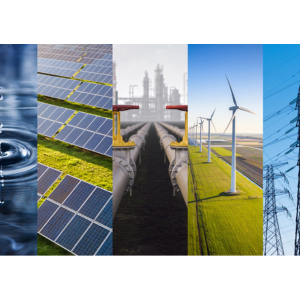As we look toward 2025, several key trends are set to reshape utility management, driven by advancements in technology and an increasing emphasis on sustainability. These trends are not only transforming how utilities operate but also enhancing customer experiences and addressing environmental concerns.
Integration of Smart Technologies For Utility Management
The integration of smart technologies will continue to revolutionize utility operations. Advanced Metering Infrastructure (AMI) will play a pivotal role in enabling real-time data collection and analytics. This technology provides utilities with accurate insights into energy consumption patterns, allowing for better demand forecasting and more efficient resource allocation. By leveraging this data, utilities can enhance customer engagement through personalized services, such as tailored energy-saving recommendations and real-time alerts about usage spikes. The ability to interact with customers in a meaningful way fosters greater transparency and trust, ultimately leading to more sustainable consumption behaviors.
Accelerating Shift to Renewable Energy
Another critical trend is the accelerating shift toward renewable energy sources. As concerns about climate change intensify, utilities are investing heavily in solar, wind, and battery storage technologies. This transition not only reduces carbon footprints but also enhances energy resilience by creating a more decentralized energy grid. Decentralization allows for localized energy production, which can mitigate risks associated with centralized power generation, such as outages and vulnerabilities to extreme weather. By diversifying energy sources, utilities can ensure a more stable and reliable supply, which is essential as demand continues to grow.
Moreover, the increased investment in renewable energy infrastructure will create new job opportunities and stimulate economic growth. As utilities transition to greener energy sources, they will also collaborate with local communities to develop projects that align with their sustainability goals. This engagement will strengthen community ties and enhance public support for renewable initiatives.
Rise of Artificial Intelligence and Machine Learning
The rise of artificial intelligence (AI) and machine learning will significantly enhance utility management by streamlining operations through predictive maintenance and improved customer service. These technologies enable utilities to rapidly analyze large data sets, identify usage patterns, and forecast demand fluctuations. By anticipating customer needs, utilities can optimize resource allocation and prepare for peak demand periods. For instance, AI can facilitate proactive maintenance scheduling, minimizing downtime and boosting service reliability.
Furthermore, AI-driven chatbots and virtual assistants will improve customer service by providing immediate assistance and resolving common issues without human intervention. This enhances efficiency, allowing customer service representatives to concentrate on more complex inquiries, which ultimately leads to a better customer experience.
Focus on Sustainability and Equitable Access
Regulatory changes will also play a significant role in shaping the future of utility management. Stakeholders, including consumers, policymakers, and advocacy groups, are increasingly demanding transparency and accountability from utility providers. As a result, utilities will need to focus on sustainability and equitable access to energy resources. This shift will encourage the development of innovative solutions that address environmental concerns while promoting social equity.
Utilities will need to create programs that support low-income households and ensure access to clean energy options. This may involve offering incentives for energy-efficient upgrades or expanding access to renewable energy technologies. By prioritizing equity, utilities can create a more inclusive energy landscape that benefits all communities, regardless of socioeconomic status.
Conclusion
In summary, the future of utility management in 2025 promises to be more efficient, sustainable, and customer-focused. The integration of smart technologies, the acceleration of renewable energy adoption, the rise of AI and machine learning, and the emphasis on sustainability and equity will drive transformative changes in the industry. As utilities embrace these trends, they will not only enhance operational efficiencies but also contribute to a greener planet and improved customer satisfaction. The journey toward a more sustainable energy future is not only essential for meeting the challenges of climate change but also for fostering resilient and equitable communities. Do follow https://www.savills.co.uk/services/property-management/utilities-management.aspx
You can also visit our website https://utility7.com/

